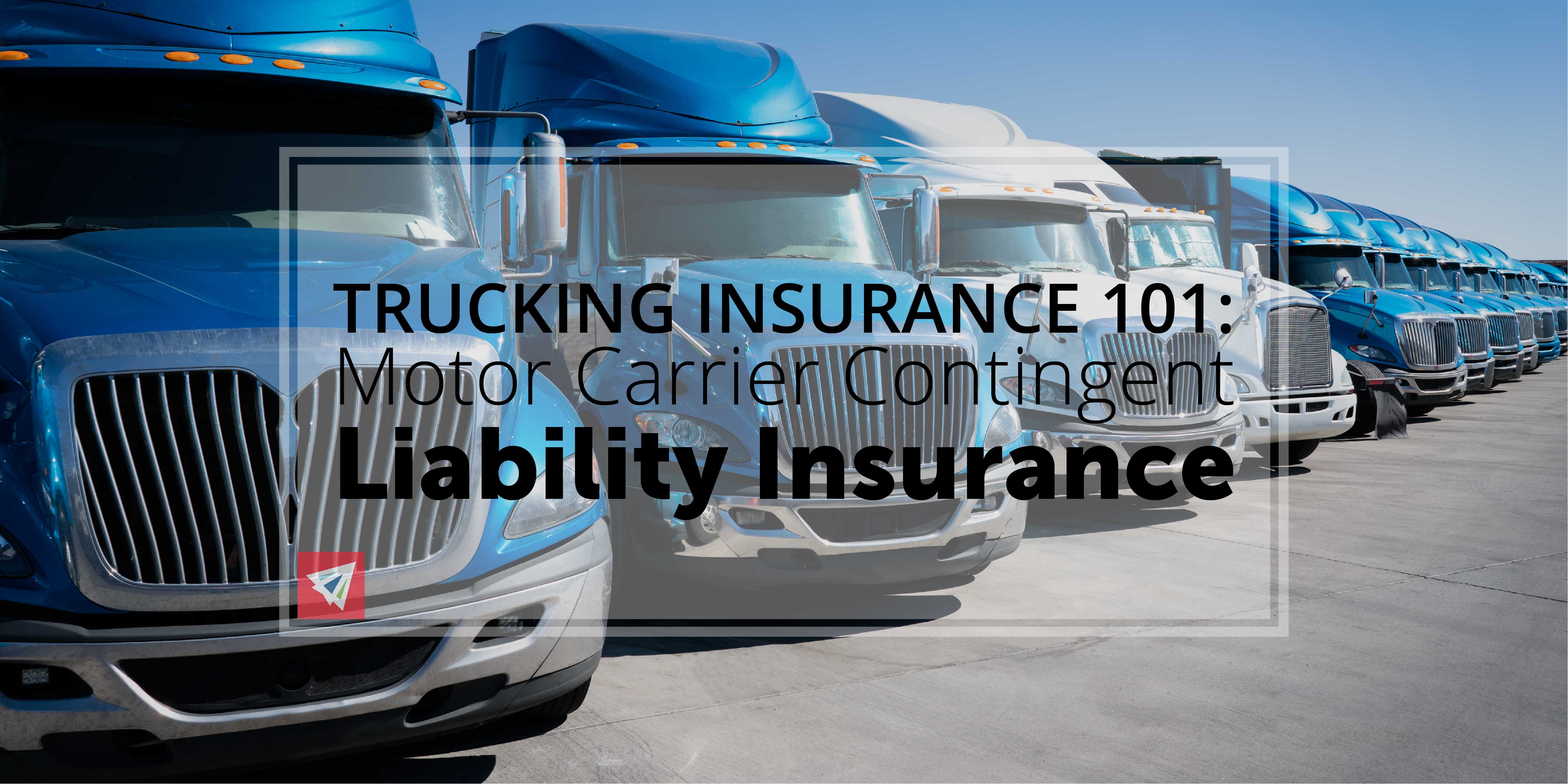It’s trucking insurance week (or at least that’s what we’ll call it for now).
As the name may infer, Motor Carrier Contingent Liability Insurance is for the Motor Carrier. More specifically, it provides coverage in the case of employee/contractor filing lawsuits for damages under workers compensation.
Motor Carrier Contingent Liability Insurance: Definition
Employees are covered under workers compensation programs, however, contractors are not. In the trucking industry, truckers are often hired by carriers as contractors as opposed to as employees. This helps carriers to mitigate their risks while still getting the job done.
But there are tons of instances in which owner/operators of vehicles have claimed to be employees in the instance of damages and workers compensation when they were originally hired as contractors. Since the risks of this type of incidence is not too uncommon, Motor Carrier Contingency Liability Insurance was created to protect the carrier by reimbursements should the contractor win the lawsuit settlement.
Who is Responsible for Purchase?
As you may infer from the definition, the carrier is responsible for purchasing Motor Carrier Contingent Liability Insurance, since it is intended to keep them protected from their contractors suing for workers compensation.
When Coverage Starts
Motor Carrier Contingent Liability Insurance keeps carriers covered in the instance of a lawsuit settlement being won by a contractor/employee. Should a contracted owner/operator of a truck claim to be an employee for sake of taking workers compensation, motor carrier contingent liability insurance will reimburse them for any settlements that weigh on the side of the contractor.
Is Motor Carrier Contingent Liability Insurance Required?
No! It is not legally required, however, it would be incredibly unwise to not purchase it. Here’s why:
You thought you booked your shipments with an independent contractor. That’s what the agreement was, that’s how they were paid and signed on to the deal. However, there are a variety of ways by which an independent contractor can be defined. Here is a list of things an independent contractor does:
- Drives for other motor carriers
- Uses his own truck, tools, and equipment
- Hires and pays assistants
- Sets his own work schedule
- Makes profits or suffer losses
- Has a registered business license
Here’s the catch – if even one of these criteria is found to not be met by the contractor, they can win a lawsuit and claim they are an employee.
Likelihood of Need
How likely is this to actually happen? Well, it happened to FedEx if that answers your question. In 2014, it was ruled that 2,300 truck drivers were actually employees rather than contractors. How did that translate to the bottom line? FedEx lost the case and lost hundreds of millions of dollars.
If it can happen to FedEx, it can certainly happen to you.
Conclusion
Make sure to purchase Motor Carrier Contingent Liability Insurance to keep you covered in the instance of employment lawsuits. You never know when or where it will occur from, but you don’t want to be on the bad side of the deal when it happens.
If you have any questions of insurance or related topics, please reach out to one of team members! We’re happy to help in any way we can!
